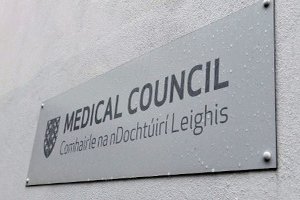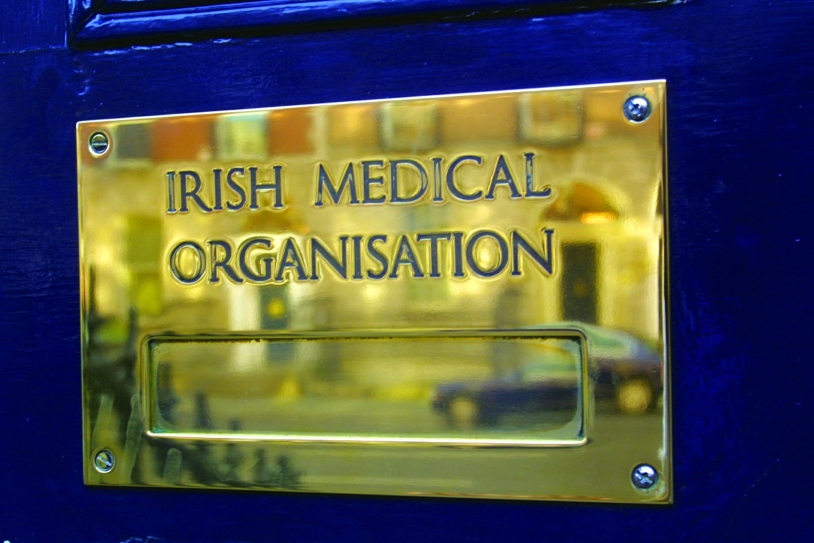Dr Suzanne Crowe, the President of the Medical Council, has written to all members of the profession to acknowledge the “dedication and committed service provided by every registered medical practitioner in the country over the past year”.
Facing into what could be the most challenging time since the pandemic began, Dr Crowe acknowledged that this time last year, doctors “tentatively believed that the worst was over, and hope was on the horizon with a vaccine imminent.”
However, the recent emergence of the Omicron variant has meant that uncertainty is on the rise, and pressure is increasing on the healthcare system. Dr Crowe also noted that while “the past couple of years have been undoubtedly tough, several of the issues you face on a daily basis have been around for quite some time, and many pre-date the Covid-19 pandemic”.
Dr Crowe referred to the ongoing issues in the health service that need addressing, including resourcing, excessively long hours, burnout and bullying. She added that the Medical Council was “committed to working with all stakeholders in a collaborative fashion to develop a workforce strategy”.
Dr Crowe concluded her letter on a positive note, stating: “Our health service, our country, will continue to face these challenges and together we will see the brighter days that lie ahead.”
The full letter is reproduced below:
Letter to doctors from President of the Medical Council:
Dear colleagues,
It’s hard to believe we are at the end of another year. When we wrote to you last Christmas, we spoke about the “extraordinary times and extraordinary measures” that were required to tackle the most unprecedented experience of our careers. We tentatively believed that the worst was over, and hope was on the horizon with a vaccine imminent. But here we are, twelve months on, and unfortunately, the situation we find ourselves in as a nation and a health service with the Omicron variant poses new challenges. New challenges, but challenges we will face, and challenges we will overcome.
2021 was a strange year – we had the impossibly difficult few months early in the year, the joyous time around the arrival and distribution of the vaccine, and more recently, the disappointment when we’ve taken a step backwards with the emergence of the Omicron variant.
The medical profession has been at the forefront throughout, and you all have first-hand experience of the highs and lows this year has brought. And while it’s been another very challenging time for a lot of people, both personally and professionally, the commitment and dedication of our doctors, and all those involved in our health service and the delivery of healthcare, has been phenomenal. Through everything, and despite the huge challenges faced, many of you have operated an adapted business as usual model, as much as possible.
Some of you may now be working in a different capacity, whether in hospitals, in the community, or remotely. Many doctors now work alone, and even those in busy workplaces tend to remain distant at the moment. This in itself raises issues – a lack of social connection can have a huge impact on mental and physical wellbeing. Having someone to debrief with at the end of the day can be essential to processing your current situation.
Many of you have missed special family events and crises or have lost family members and been unable to support sick and bereaved relatives. You have sacrificed so much. I would urge you all to consider yourself and, while I know it’s not always easy, with the increased workload, longer hours, additional pressure and stress, please take the time to care for yourself. Prioritise yourselves so you can help others. I would encourage you to seek out and access those supports that bolster your wellbeing, this is particularly crucial in the challenging system that we are faced with. I’d also like to remind you of making sure you have your own GP.
While the past couple of years have been undoubtedly tough, several of the issues you face on a daily basis have been around for quite some time, and many pre-date the Covid-19 pandemic. In addition to the impact of the pandemic, the healthcare system in Ireland has been under pressure for years. Resourcing is a huge problem, as are excessively long hours, burnout and bullying. These ongoing issues in our healthcare services have been raised time again, they appear consistently in our reports, and yet they have not been adequately addressed.
Focus must be given to retention and attrition in our workforce, leading to consideration of resourcing issues, improving training resources, and providing opportunities for progression. While it’s very nice to have our hard work over the past 18 months acknowledged and appreciated, systemic issues need to be examined. What is needed to tackle these problems is a new medical workforce strategy, as an integral part of a wider healthcare workforce strategy, that positions and enables the Irish health service to provide high quality, sustainable patient-centred care. This should consider and address issues such as the required number of specialists into the future, increasing the number of trainees to match this need, aligning this with medical school intake, reducing the number of doctors not in training programmes, improving the quality of training programmes.
The Medical Council is committed to working with all stakeholders in a collaborative fashion to develop that workforce strategy, and to using its regulatory powers in a focused and proportionate way to enable change and improvement, and if I am to make a New Year’s resolution this year it is to work collaboratively to achieve this goal.
A health service’s foundations are based on the people working in it, not the bricks and mortar. Without a strong foundation we face continued challenges and risks to our patients. We must address the systemic issues impacting these doctors, so we can truly protect patients, and support, not only our medical workforce, but all those working in the health sector.
Christmas can be a difficult time for some. I know a lot of our colleagues are unable to travel home to visit family and loved ones, others still are working over the holiday, in hospitals, general practice, out of hours services or other services, and many of you won’t get to celebrate as you’d like.
A large number of doctors have once again taken up the challenge, leading and working long hours to deliver a greatly expanded vaccine booster roll out. All I can say to those involved is a simple, heartfelt and sincere thank you.
Last year my predecessor as President, Dr Rita Doyle, in her letter to you quoted Marie Curie stating ‘Nothing in life is to be feared, it is only to be understood. Now is the time to understand more, so that we may fear less.’
Although we may face many challenges over the coming weeks, please remember we understand more. We fear less.
Our health service, our country, will continue to face these challenges and together we will see the brighter days that lie ahead.
We look forward to 2022 with hope and optimism for all that it will bring.
I wish you all a very peaceful festive season, with every good wish for the New Year.
With every best wish,
Dr Suzanne Crowe
President













Leave a Reply
You must be logged in to post a comment.